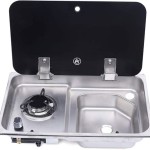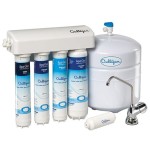Should Eggs Float Or Sink In Water
The age-old question of whether eggs float or sink in water has puzzled many. This seemingly simple question delves into the fascinating realm of science, specifically the principles of buoyancy and density. Understanding the factors that determine whether an egg floats or sinks provides valuable insights into these fundamental concepts.
Buoyancy, in essence, is the upward force exerted by a fluid that counteracts the weight of an object submerged in it. This force is equal to the weight of the fluid displaced by the object. When the weight of the displaced fluid is greater than the weight of the object, it experiences an upward force, causing it to float. Conversely, if the weight of the displaced fluid is less than the weight of the object, it sinks.
An egg's ability to float or sink in water depends primarily on its density relative to the density of water. Density is defined as mass per unit volume. The density of an egg is typically around 1.08 grams per cubic centimeter (g/cm³), while the density of water is 1.00 g/cm³. This means that an egg is slightly denser than water.
In a fresh egg, the air cell, located at the wider end, is relatively small. As an egg ages, however, the air cell gradually expands due to evaporation of water through the eggshell. This process reduces the egg's overall density, making it less dense than water. As a result, older eggs tend to float in water, while fresher eggs tend to sink.
Other factors can also influence an egg's ability to float or sink. For example, the salinity of the water can affect the density of the water itself. In saltwater, which is denser than freshwater, an egg may float more easily than it would in freshwater. Additionally, the temperature of the water can also have an impact. As water temperature increases, its density decreases, making it less likely for an egg to float.
Determining whether an egg floats or sinks in water can provide a simple yet effective means of assessing its freshness. A fresh egg that sinks to the bottom of a container of water indicates that it is of good quality and can be consumed. An egg that floats, on the other hand, may be older and should be inspected further to ensure its suitability for consumption.
In summary, eggs float or sink in water based on their density relative to the density of the water. Fresh eggs, with a higher density due to a smaller air cell, tend to sink. As eggs age, the air cell expands, reducing their density and causing them to float. Other factors, such as water salinity and temperature, can also influence an egg's ability to float or sink.

Why Bad Eggs Float And Good Sink

Why Do Old Eggs Float Scienceabc
When We Put An Egg In Cold Water Should It Sink Or Float Quora

Egg Float Test Is It A Myth The Happy Chicken Coop

How Salty Does The Sea Have To Be For An Egg Float

Egg Float Test Is It A Myth The Happy Chicken Coop

Egg Float Test

Egg Float Test Fact Or Fiction Chickens And More

How To Tell If Your Eggs Are Off Australian

Egg Float Test Myth Is It Accurate







